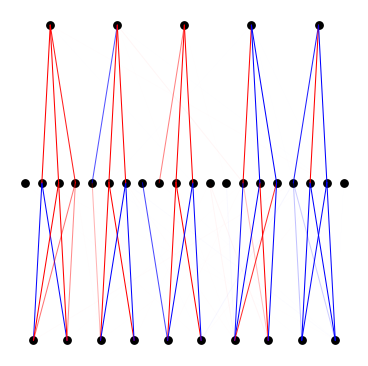Interpretability 10B: swap
The multitask parity problem has 10 input bits \((x_1, x_2, \cdots, x_{10})\), \(x_i\in\{0,1\}\).
The are five output bits \(y_1, \cdots, y_5\), where \(y_i = x_{2i-1} + x_{2i-1} ({\rm mod} 2)\)
from kan import *
device = torch.device('cuda' if torch.cuda.is_available() else 'cpu')
print(device)
model = KAN(width=[10,10,5], seed=1, device=device)
x = torch.normal(0,1,size=(100,2), device=device)
#f = lambda x: torch.exp(torch.sin(torch.pi*x[:,[0]])+x[:,[1]]**2)
f = lambda x: torch.cat([x[:,[0]] + x[:,[1]], x[:,[2]] + x[:,[3]], x[:,[4]] + x[:,[5]], x[:,[6]] + x[:,[7]], x[:,[8]] + x[:,[9]]], dim=1)
dataset = create_dataset(f, n_var=10, device=device)
model.fit(dataset, steps=20, lamb=1e-2);
cuda
checkpoint directory created: ./model
saving model version 0.0
| train_loss: 8.26e-02 | test_loss: 7.72e-02 | reg: 1.66e+01 | : 100%|█| 20/20 [00:04<00:00, 4.93it
saving model version 0.1
model.plot()
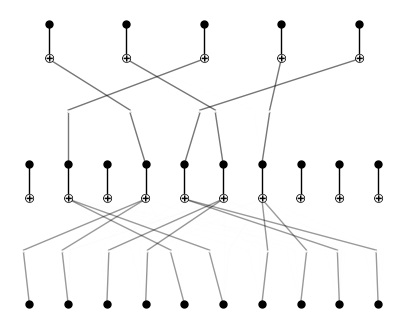
model.auto_swap()
saving model version 0.2
model.plot()
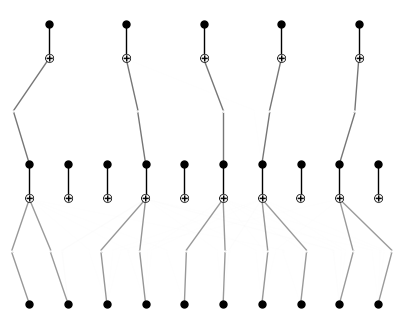
# MLP
from kan import *
from kan.MLP import MLP
device = torch.device('cuda' if torch.cuda.is_available() else 'cpu')
print(device)
inputs = []
for i in range(2**10):
string = "{0:b}".format(i)
sample = [int(string[i]) for i in range(len(string))]
sample = (10 - len(sample)) * [0] + sample
inputs.append(sample)
inputs = np.array(inputs).astype(np.float32)
labels = np.sum(inputs.reshape(2**10,5,2), axis=2) % 2
inputs = torch.tensor(inputs)
labels = torch.tensor(labels)
dataset = create_dataset_from_data(inputs, labels, device=device)
model = MLP(width=[10,20,5], seed=5, device=device)
model.fit(dataset, steps=100, lamb=2e-4, reg_metric='w');
cuda
| train_loss: 4.58e-03 | test_loss: 4.63e-03 | reg: 5.09e+01 | : 100%|█| 100/100 [00:04<00:00, 23.41
model.plot(scale=1.5)
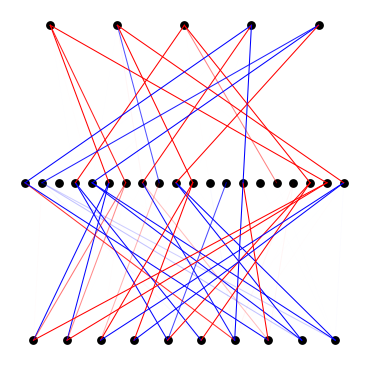
model.auto_swap()
model.plot(scale=1.5)
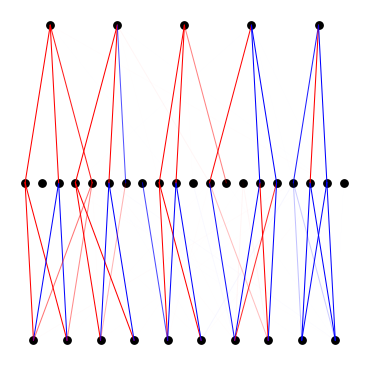
model.auto_swap()
model.plot(scale=1.5)
